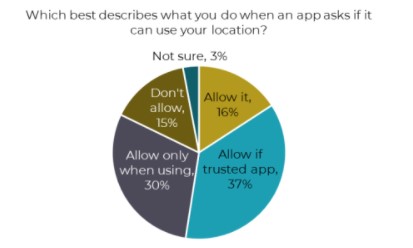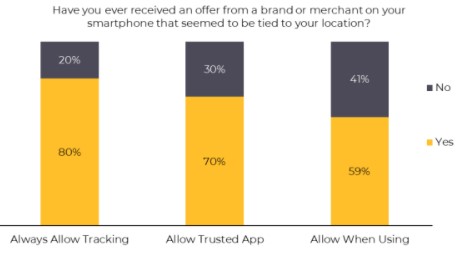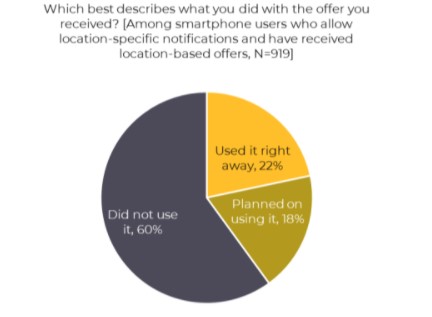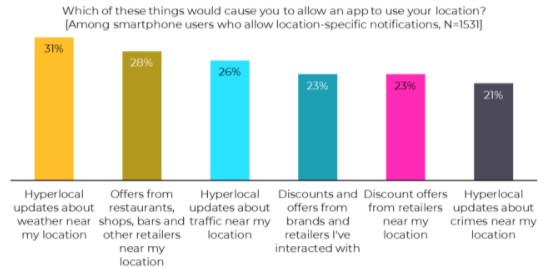-
Location-Based Marketing: Still on the Menu? Part II
October 11, 2021
Have an opinion? Add your comment below. -
Last week we showed results from a NuVoodoo Quick-Turn Study fielded September 17-19 including the opinions of 1,966 adults 18-64 nationwide, balanced by age, gender and geography. The study was prompted by Apple's moves to increase consumer privacy and our concern this might significantly hurt our ability to use location-based targeting as a strategy for our marketing clients.
We asked respondents to rate the level of trust they have in different entities to use their personal information and location responsibly. In a grouping where Amazon and Google are most trusted and Facebook and Instagram are least trusted, local radio stations (and TV stations) are close to the stronger trust levels of Amazon and Google. This turns out to be incredibly important, since a 37% plurality of respondents say they'll allow smartphone apps to use their location if it's a trusted provider.

In fact, our data reveals that battery life is a bigger concern than privacy when it comes to smartphones tracking locations, with over a third citing battery-life concerns regarding location-tracking compared to about a fifth citing privacy concerns. Battery life concerns will diminish as people upgrade their phones. Absent those concerns, close to seven in ten find location-tracking helpful for at least some apps.
Among those who allow location tracking only when using an app (on the right in the chart below), 59% say they’ve received offers tied to their location. Among those who always allow location tracking (on the left in the chart), 80% say they’ve received location-based offers. And among those who allow location tracking with trusted apps (in the middle of the three columns), 70% say they’ve received location-sensitive offers. People are accustomed to receiving these offers.

So, among those who allow location-specific notifications at all AND say they have received a location-based offer (a group that amounts to nearly half the sample), better than 1 in 5 say they took advantage of an offer right away and a nearly equal-sized group planned on using the offer. That’s not everyone, but those are massive numbers for direct marketing.

We gave respondents who allow location-tracking a menu of things that might cause them to allow an app to use their location. Offers from businesses near their location are nearly as enticing as updates on weather based on their location – and radio knows well the potency of local weather when people rank information that’s valuable to them.

Location-based marketing offers some tools for radio promotion and for radio sales teams. When it’s your event or concert, geofencing allows you to reach people who are there. When it’s your competitor’s event, geo-conquesting allows you to target your competitor’s attendees. And you can use these location-specific tools to target potential listeners and customers in other ways. NuVoodoo marketing guru, Mike O’Connor, and I have produced a short webinar with more research details, an explanation of the location-based mobile marketing toolset and insights from our mobile marketing expert. You can watch the webinar here.
Recognizing that Facebook’s whistleblower testimony and recent service outage will likely have an impact on trust for that platform and co-owned Instagram, we’re back in the field with another NuVoodoo Quick-Turn Study. Stay tuned.
-
-

